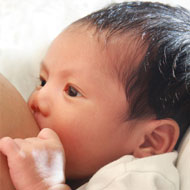- General Articles
- General Pregnancy Questions
- Baby Growth
- Pregnancy Diet
- Miscarriage
- During Pregnancy
- Twin Pregnancy
- Toddler Meals
- Home Remedies During Pregnancy
- Breastfeeding
- Pregnancy Week By Week
- Pregnancy Tests
- Ectopic Pregnancy
- Pregnancy Signs and Symptoms
- Pregnancy Stages
- Potty Training
- Fetal Development
- Preschooler
- Postpartum Depression
- Toddler Illness
- Baby Care
- After Pregnancy
- Molar Pregnancy
- During Delivery
- Beauty and Style
- Pregnancy Clothing
- Preconception
- Fertility
Caffeine and Fertility
Much is being said and written about the consequences of caffeine intake on the human body, including its effect on fertility, both in males and females. This is probably because caffeine is the most easily available, and consumed, mood changing drug in the world.
Studies indicate that caffeine forms a part of the daily diet in almost 80-90 percent of people in the US, comprising of adults and children. Caffeine is consumed in various forms, like coffees, colas, cakes, chocolates and energy drinks. Small amounts of caffeine may also be found in prescription and over-the-counter drugs...
Though drugs and some energy drinks carry a warning cautioning pregnant women to consult a medical professional before use, there may be no such warning for people who are trying to conceive. Studies indicate that caffeine affects not only pregnancy, but also the ability to get pregnant.
Because intake of caffeine is so universal and common, information about its effects on the human body, and the link between caffeine and fertility, is very important.
Effect on male fertility
There is some confusion on this topic because there is no concrete evidence that caffeine can affect fertility in men. Some research done on this topic however suggests that, excessive consumption may indeed influence fertility in the male partner.
According to some studies, high caffeine intake had adverse effects on sperm motility. Laboratory studies of sperms with caffeine showed that there was an initial spurt in sperm motility. But this effect was found to gradually decrease, and the sperms moved much slower, as when compared to a sperm without traces of caffeine in it.Some other studies claim that men born to women with high caffeine intake suffered from low sperm quantity and quality. This research however needs further corroboration.
Effect on female fertility
Studies of effects of caffeine on female fertility are more conclusive than that of studies on male fertility. Many studies indicate that excessive consumption of caffeine by the female partner can increase chances of a miscarriage. According to one such study, women who consumed more than 200 mg of caffeine every day had double the miscarriage rate, as compared to women who were off caffeine.
Studies also show that female caffeine consumers took longer to conceive than non-users. It was seen that women who consumed less than one cup of coffee each day, had double the chances of conceiving in one monthly cycle, than women who consumed more than a cup daily.
Though it is not known what exactly it is in caffeine which decreases fertility, it is assumed that the answer lies in the ability of the caffeine to affect the quality of the female’s maturing oocyte or egg cell, thereby making it difficult to conceive.
Also, research done on women undergoing IVF (In vitro fertilization) established that even a slight amount (50 mg) of caffeine, may decrease the chances of the woman to have a live birth. Some studies have also linked low birth weight with consumption of caffeine. Caffeine is said to metabolize slower in a pregnant woman, and can be easily passed on to the developing fetus through the mother’s placenta.
How much caffeine is safe?
Though a small amount of caffeine each day may not pose a significant problem, excessive amounts may actually make a difference. The exact amount of caffeine or a safe limit, above which its consumption can affect fertility, cannot be pin-pointed, so it is advisable for pregnant women and people trying to conceive, to limit or avoid caffeine intake.
References
- http://cot.food.gov.uk/cotstatements/cotstatementsyrs/cotstatements2001/caffeine
- http://www.resolve.org/infertility-overview/optimizing-fertility/caffeine-does-it-affect-your-fertility-and-pregnancy.html
Read more articles from the Pregnancy Diet Category.



 7 Must-Haves Before Your Baby Arrives
7 Must-Haves Before Your Baby Arrives Bonding Games for Babies
Bonding Games for Babies DIY Baby Bath Towel Apron
DIY Baby Bath Towel Apron Common Late Pregnancy Fears
Common Late Pregnancy Fears